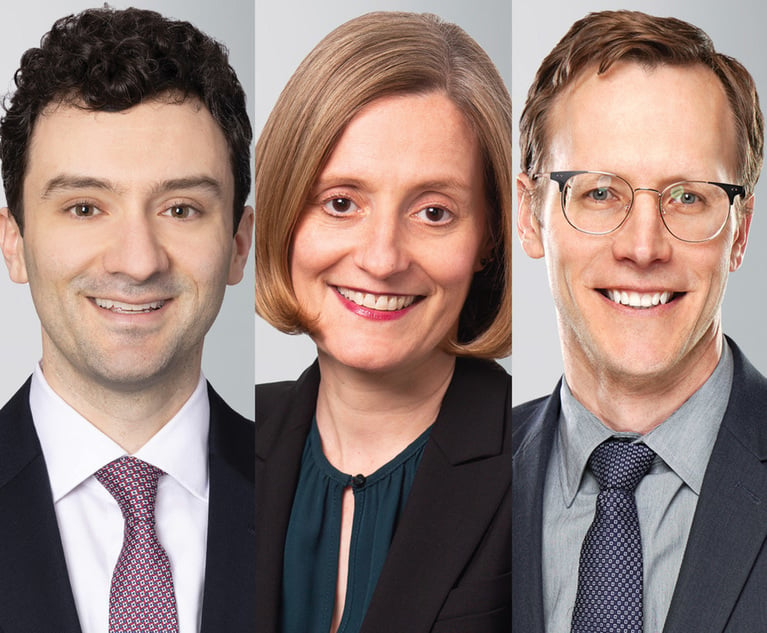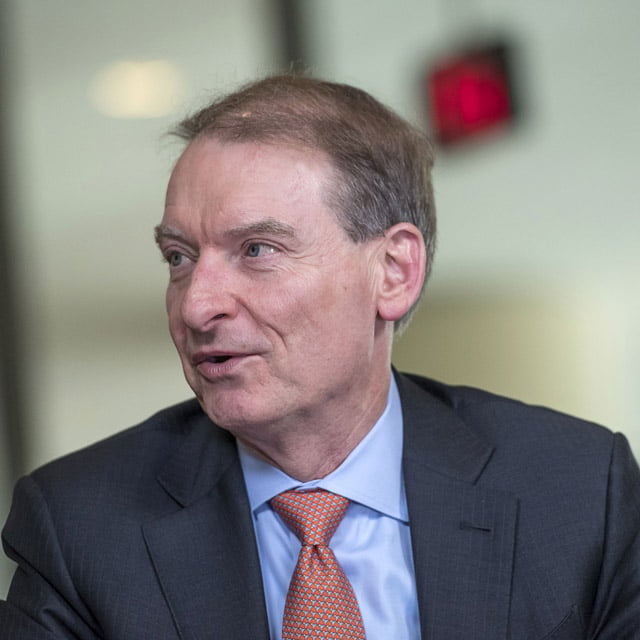 Mark D. Harris and Margaret A. Dale
Mark D. Harris and Margaret A. Dale What Makes a Scheme?
A recent decision from the U.S. Court of Appeals for the Second Circuit has at least temporarily stifled the potential expansion of "scheme liability" under the federal securities laws.
August 30, 2022 at 10:00 AM
7 minute read
A recent decision from the U.S. Court of Appeals for the Second Circuit has at least temporarily stifled the potential expansion of "scheme liability" under the federal securities laws. In SEC v. Rio Tinto, 41 F.4th 47 (2022), the SEC had hoped to salvage a 2017 enforcement action against a company, its CEO, and its CFO, pursuant to two federal securities laws—Rule 10b-5(a) and (c), promulgated under §10(b) of the Securities Exchange Act of 1934, and §17(a)(1) and (3) of the Securities Act of 1933. Separate subsections in those statutes, which the court noted largely mirror each other, make it illegal either to (1) make an untrue statement or omit a material fact or (2) employ a scheme to defraud, in connection with the purchase or sale of a security.
This content has been archived. It is available through our partners, LexisNexis® and Bloomberg Law.
To view this content, please continue to their sites.
Not a Lexis Subscriber?
Subscribe Now
Not a Bloomberg Law Subscriber?
Subscribe Now
NOT FOR REPRINT
© 2024 ALM Global, LLC, All Rights Reserved. Request academic re-use from www.copyright.com. All other uses, submit a request to [email protected]. For more information visit Asset & Logo Licensing.
You Might Like
View All


A New Era of Enforcement on 10b5-1 Trading Plans: Implications of United States v. Peizer
8 minute read
Atkins Likely to Bring Pro-Business, Light Regulatory Touch to SEC, Say Agency Observers
Law Firms Mentioned
Trending Stories
- 1Senate Judiciary Dems Release Report on Supreme Court Ethics
- 2Senate Confirms Last 2 of Biden's California Judicial Nominees
- 3Morrison & Foerster Doles Out Year-End and Special Bonuses, Raises Base Compensation for Associates
- 4Tom Girardi to Surrender to Federal Authorities on Jan. 7
- 5Husch Blackwell, Foley Among Law Firms Opening Southeast Offices This Year
Who Got The Work
Michael G. Bongiorno, Andrew Scott Dulberg and Elizabeth E. Driscoll from Wilmer Cutler Pickering Hale and Dorr have stepped in to represent Symbotic Inc., an A.I.-enabled technology platform that focuses on increasing supply chain efficiency, and other defendants in a pending shareholder derivative lawsuit. The case, filed Oct. 2 in Massachusetts District Court by the Brown Law Firm on behalf of Stephen Austen, accuses certain officers and directors of misleading investors in regard to Symbotic's potential for margin growth by failing to disclose that the company was not equipped to timely deploy its systems or manage expenses through project delays. The case, assigned to U.S. District Judge Nathaniel M. Gorton, is 1:24-cv-12522, Austen v. Cohen et al.
Who Got The Work
Edmund Polubinski and Marie Killmond of Davis Polk & Wardwell have entered appearances for data platform software development company MongoDB and other defendants in a pending shareholder derivative lawsuit. The action, filed Oct. 7 in New York Southern District Court by the Brown Law Firm, accuses the company's directors and/or officers of falsely expressing confidence in the company’s restructuring of its sales incentive plan and downplaying the severity of decreases in its upfront commitments. The case is 1:24-cv-07594, Roy v. Ittycheria et al.
Who Got The Work
Amy O. Bruchs and Kurt F. Ellison of Michael Best & Friedrich have entered appearances for Epic Systems Corp. in a pending employment discrimination lawsuit. The suit was filed Sept. 7 in Wisconsin Western District Court by Levine Eisberner LLC and Siri & Glimstad on behalf of a project manager who claims that he was wrongfully terminated after applying for a religious exemption to the defendant's COVID-19 vaccine mandate. The case, assigned to U.S. Magistrate Judge Anita Marie Boor, is 3:24-cv-00630, Secker, Nathan v. Epic Systems Corporation.
Who Got The Work
David X. Sullivan, Thomas J. Finn and Gregory A. Hall from McCarter & English have entered appearances for Sunrun Installation Services in a pending civil rights lawsuit. The complaint was filed Sept. 4 in Connecticut District Court by attorney Robert M. Berke on behalf of former employee George Edward Steins, who was arrested and charged with employing an unregistered home improvement salesperson. The complaint alleges that had Sunrun informed the Connecticut Department of Consumer Protection that the plaintiff's employment had ended in 2017 and that he no longer held Sunrun's home improvement contractor license, he would not have been hit with charges, which were dismissed in May 2024. The case, assigned to U.S. District Judge Jeffrey A. Meyer, is 3:24-cv-01423, Steins v. Sunrun, Inc. et al.
Who Got The Work
Greenberg Traurig shareholder Joshua L. Raskin has entered an appearance for boohoo.com UK Ltd. in a pending patent infringement lawsuit. The suit, filed Sept. 3 in Texas Eastern District Court by Rozier Hardt McDonough on behalf of Alto Dynamics, asserts five patents related to an online shopping platform. The case, assigned to U.S. District Judge Rodney Gilstrap, is 2:24-cv-00719, Alto Dynamics, LLC v. boohoo.com UK Limited.
Featured Firms
Law Offices of Gary Martin Hays & Associates, P.C.
(470) 294-1674
Law Offices of Mark E. Salomone
(857) 444-6468
Smith & Hassler
(713) 739-1250






